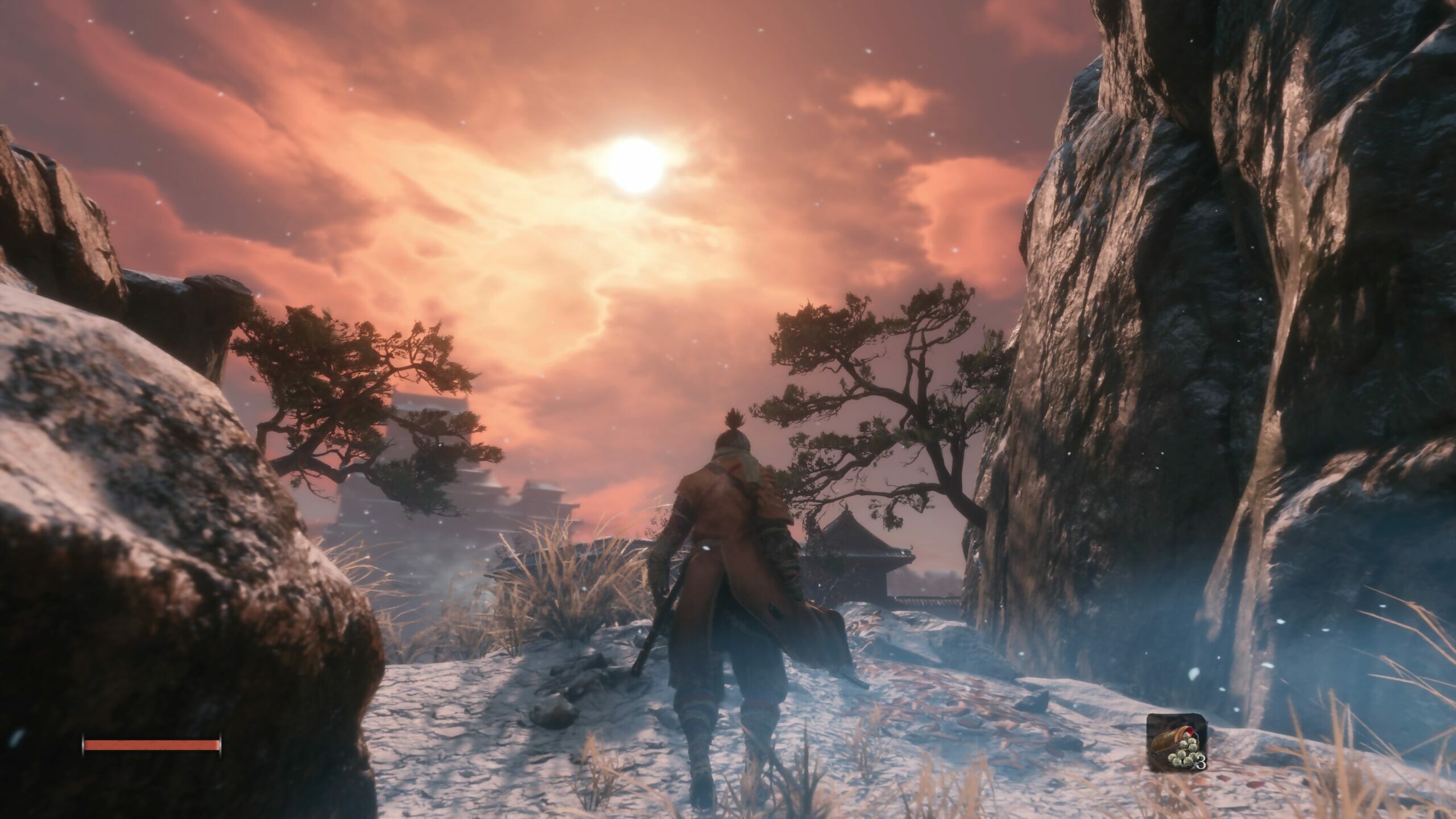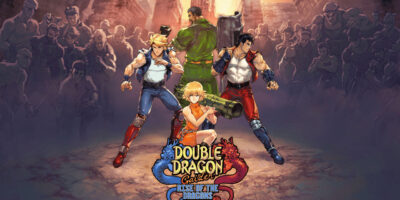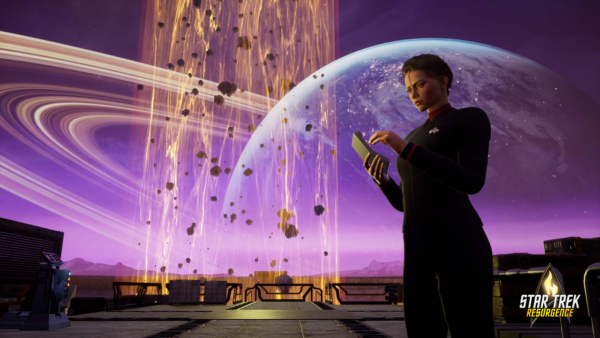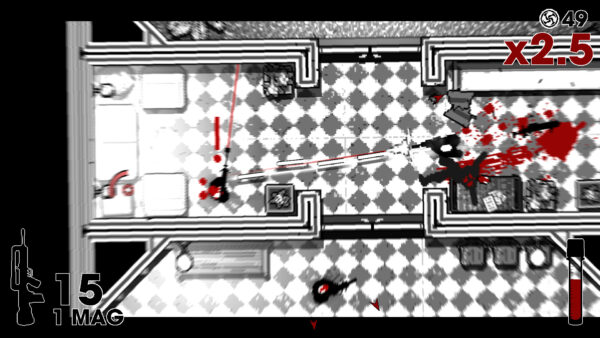
Sekiro: Shadows Die Twice is another winning action RPG from the creators of Dark Souls. Our review…
The number of times I told myself, aloud, to ‘stop dodging’ while playing the game.
The number of times I claimed it was the game being cheap, and ‘cheating’, when I once again died.
The number of times I roared with satisfaction at taking down a particularly challenging (i.e. all of them) sub-boss.
Sekiro: Shadows Die Twice is an intense experience that’s unlikely to be forgotten by anyone who plays it for even a brief stretch. FromSoftware – backed this time by Activision, of all publishers – had a lot to live up to with its previous slate, but by crikey, that studio does not make these things by accident.
You are a nimble shinobi tasked with… well, it’s a clear and simple story, but it’s not important. What is important is the game brings to mind – along with the Soulsborne titles – the likes of Tenchu.
Nimbly navigating the world, using a prosthesis to grapple up to nearby rooftops, you hide in the shadows and strike from cover, thinning out considerable enemy numbers while making your way from one boss encounter to another.
Even if you never got into stand-up-and-fight battles, I think there’d be a lot to recommend about Sekiro. But you do get into fights. And you do stand toe to toe. And you do, spoiler alert, die a hell of a lot, because this is a game by Hidetaka Miyazaki, and he is a man who dislikes it when players get to be alive all the time.
Sekiro offers up death not just as an inevitability and practical learning tool, but one of tactical advantage too.
Your ability to resurrect – a limited number of times – at a moment of the player’s choosing offers the chance to wait, to play dead, to rise again and bring judgment down on those who not long before thought their job was done. It’s a straightforward mechanic, but one that highlights the differing approach to death Sekiro has when compared to that of the Souls/Bloodborne games.
While there it was live, die, try to get back to where you were and pick up where you left off, here it’s more about accepting your fate and learning that you can’t always win.
You can come back, should you have the stored up live-again power, but most of the time it will be a straightforward case of death, dying, and not living any more. The more you die the more afflicted the world around you becomes with a disease linked to your inability to keep living.
The more you die the less likely you are to be saved from losing half of your earned money and progress towards new techniques. Sekiro doesn’t focus on picking up where you left off, on building up and continuing the slog; it instead backs the player into a corner and encourages – forces – them to get their hackles up and fight back.
See, that’s the trigger here, the eureka moment in something that initially felt to me like a trudge through needless difficulty. Sekiro spells it out and puts it there in plain sight – a loading screen literally tells you the shinobi are aggressive combatants.
You are a shinobi. You need to be aggressive. Stop dodging. Stop pacing around waiting to strike. Stop letting them come to you and overwhelm you. It can be difficult to come to terms with this, especially coming in direct via From’s previous titles, but when it clicks, the click is hard.
Death – repeated, incessant, death – might have backed you into a corner, but the learning experience that comes with those deaths has equipped you with all the tools you need to unleash that pure aggression on those who stand in your way.
Really, Sekiro is pretty basic stuff – it’s a lot of killing, sneaking, swordfights, and a story that manages to lose some of its allure compared to the Soulsborne games by being far less obtuse. It’s any number of mid-range games from the mid-noughties, balancing its appeal on a few mechanics and hoping that’s enough to keep you engaged.
If you look at it on paper, that’s really what it is; there’s nothing here that hasn’t been done elsewhere before. But there’s also a hell of a lot here that hasn’t been done as well before. It might be balancing its appeal on the FromSoftware name and a few mechanics, but FromSoftware has earned that name, and those mechanics are often – if not always – flawless.
‘Not always’? Of course not. Your failures are your own, and while the game can sometimes feel unfair, it’s usually your own fault when you die (for the 800th time).
But sometimes, here and there, the fourth wall comes tumbling down – an enemy sees you on the other side of a wall, another spits his poison through a rock, an ogre afraid of fire doesn’t react to being set alight because it was in the middle of a recovery animation when lit up.
Things do happen that shouldn’t, and though they’re few and far between, in a game as tough as this, it does prove disproportionately irritating when they pop up. Ruinous though? Of course not.
I came into Sekiro not fully knowing what to expect, with a head full of tactics and techniques learned from the games I automatically assumed it would ape. I was ready to tackle the hype, to look for the seams, to point out the ninja’s new clothes and publicly sacrifice the ceremonial giant chicken.
What an idiotic boob I was, and how this game let me know.
Sekiro: Shadows Die Twice is an understated masterclass in game design; endlessly inventive while simultaneously recognisable, it offers a challenge in both learning to beat it while re-learning what you think you know about From’s titles.
It’s absolutely infuriating, and I have to apologise in writing for scaring my dog by shouting at the TV so much while playing, but when the sense of reward is so great it’s soon forgotten. What a bloody good game.
Highlight
You’ll have hundreds of swordfights through the game, but Sekiro manages to keep them all thrilling – either they’re over in the blink of an eye, or the unrelenting see-saw assault goes back and forth for a few minutes. Whatever the case, they’re all brilliant.
Verdict: 87%
A straightforward, difficult joy, Sekiro blends refinement with unlimited satisfaction.
Info
Genre: Futility simulator
Format: PS4 (tested) / XBO / PC
Developer: FromSoftware
Publisher: Activision
Price: £59.99
Release: Out now





